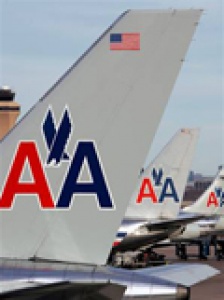American Airlines hit by continuing losses

American Airlines has reported deepening quarterly losses for the second consecutive year, as weak demand and falling fares drove sales sharply lower.
Net quarterly losses, excluding non-recurring charges, sunk to $319m compared to a loss of $298m a year earlier. Group revenues in the second quarter fell 21 percent to $4.89bn and in the first six months by 18 percent to $9.7bn.
The fear of H1N1, or swine flu, was estimated to have a $50 million to $80 million impact on this quarter, according to AMR, the airline’s parent company.
Last month, the company announced it would further reduce system-wide capacity, by about 7.5 percent for the full year of 2009 compared to 2008 levels. About 81.8 percent of total seats were filled during this quarter, compared to 82.5 percent in last year’s quarter.
Gerard Arpey, AMR chief executive, said he was confident the group would receive antitrust approval from the US competition authorities by the end of October for its planned transatlantic joint venture with British Airways and Iberia.
ADVERTISEMENT
Approval would allow the carriers to collude legally without fear of infringing cartel laws and jointly to arrange capacity, sales and marketing, to set fares and to share revenues across the North Atlantic.
Rival alliances led respectively by Delta and Air France-KLM and by United Airlines and Lufthansa already have antitrust immunity from the US authorities although the cartel arrangements are under investigation by European competition authorities.
American is also among a rapidly growing group of global carriers that have been forced to raise additional capital to shore up shrinking cash resources.
It recently raised $520m through an issue of enhanced equipment trust certificates, debt collateralised against aircraft, and said it had raised $66m through an aircraft sale and leaseback transaction.
Asprey also confirmed that the airline has the funds to take delivery of all 84 of its Boeing 737 orders through 2011. Previously, it had said it only had financing to cover 737 orders into the second half of 2010.
He said it needs its new Boeing 737-800s because they have a “favourable impact on the environment,” and more importantly to the bottom line, they are more fuel efficient. “The new 737-800 burns about 35 percent less fuel per seat-mile than the MD-80 it is replacing, an average savings of 800,000 gallons of fuel per aircraft per year,” he said.

